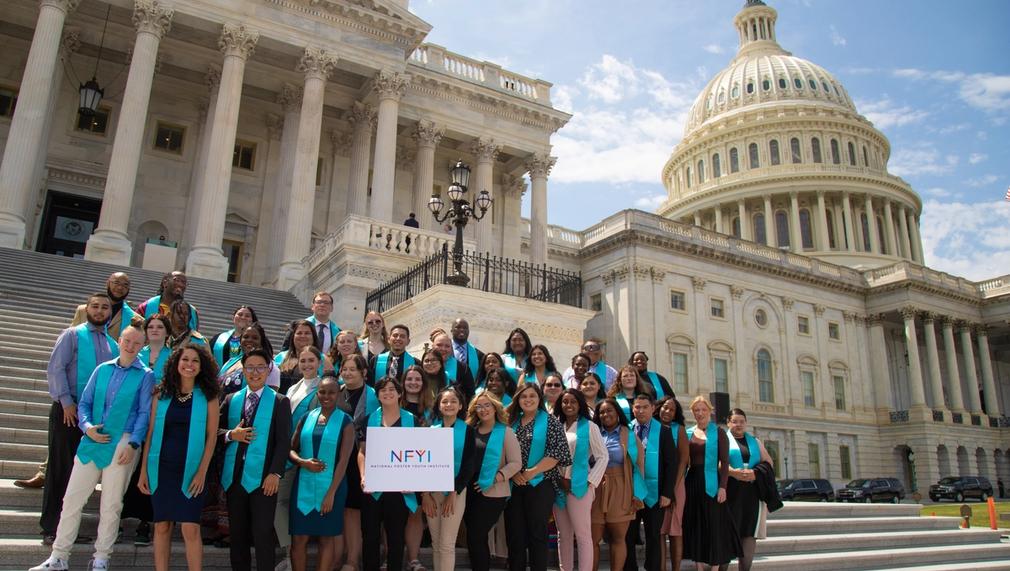Former Foster Youth Transforming The System
The National Foster Youth Institute trains, mobilizes, and lifts up thousands of foster youth voices to partner with local, state, and federal decision makers to transform the child welfare system through policy and program reforms. NFYI builds and strengthens relationships with community partners on shared agendas for change and inspires transformative change in the LA child welfare system. NFYI will pilot an LA Shadow Day event for former foster youth to see firsthand how local policy works and to share their stories with decision makers.

What is the primary issue area that your application will impact?
Support for Foster and Systems-Impacted Youth
In which areas of Los Angeles will you be directly working?
County of Los Angeles
In what stage of innovation is this project, program, or initiative?
Expand existing project, program, or initiative
What is your understanding of the issue that you are seeking to address?
The California Child Welfare Indicators Project reports that 52,000 children and youth are in the child welfare system; and 18,000 are represented in Los Angeles County. Annually, 4,300 youth age out of the system drastically leaving them transitioning into adulthood with lapses in health and mental health care, housing, and support services. These young people face severe challenges: 50% of these children will become homeless or incarcerated within one year of exiting foster care; less than 50% will graduate from high school; only 3% from college; and nearly half have learning disabilities or delays. These outcomes lead to 47% of former foster youth being unemployed and over 71% earning an annual income of less than $25,000 a year. When it comes to the formation of child welfare policy, youth directly affected by the system are often absent. The Honorable Karen Bass established the National Foster Youth Institute as a nonprofit organization in 2012, to help change these statistics.
Describe the project, program, or initiative this grant will support to address the issue.
NFYI will increase engagement with current and former foster youth, build and strengthen relationships with community partners on shared agendas for change, and inspire transformative change in the LA child welfare system. This grant will support our LA Chapter, Internships, and an LA Foster Youth Shadow Day. Members provide eye opening testimonials to decision makers about child welfare and social justice issues including homelessness, juvenile justice, access to higher education, and access to entitlement funds. They share their stories on how child welfare connects with larger social justice issues, such as school-to-prison pipeline, systemic racism, poverty, and tribal inequities. We provide workshops, professional development opportunities; civic engagement; and pipelines of leadership. Opportunities include paid part-time internships to gain experience and develop skills in community organizing and policy advocacy. Our members have other paid opportunities where they can share their lived experience and expertise in child welfare, such as professional conferences or media interviews. The LA Shadow Day will replicate NFYI's signature national event, Congressional Foster Youth Shadow Day, which is part of the Congressional Leadership Academy. These opportunities are also a pathways to employment in our organization, as some staff have started as members, become interns, and are now full-time staff.
Describe how Los Angeles County will be different if your work is successful.
We envision a future where youth with lived experience in foster care are at the center of a transformed child welfare system that serves as a beacon of hope for children and families in need. We see a community where youth are empowered to share their voices and stories through platforms created by NFYI and our community partners in Los Angeles. We believe that until young people with lived experience have a seat at the decision-making table, truly transformative change will not happen with the same urgency or have the same impact. NFYI will train, support, and empower youth with lived experience to engage in local decision-making bodies through commissions, neighborhood councils, town halls, and other opportunities to connect with decision makers or to become decision makers themselves. NFYI will pilot an LA Shadow Day event for former foster youth to see firsthand how local policy works and to share their stories with decision makers.
What evidence do you have that this project, program, or initiative is or will be successful, and how will you define and measure success?
Through engagement our young people want to take a more active role in their community. The impact of civic engagement has a rippling effect because NFYI creates an understanding of how government works when many have a distrust. After learning about government and policy, NFYI members often lead voter registration drives, encourage their family and peers to get involved, and some pursue degrees and careers in politics and social justice. Our local organizing work in Los Angeles focuses on addressing issues around homelessness, resources for young parenting foster youth, substance use and mental health, and juvenile justice reforms, and others. Recently, NFYI nominated two Black youth to the ULA Commission (Measure ULA established the ULA Tax to fund affordable housing projects and provide resources to tenants at risk of homelessness). NFYI utilizes surveys and listening sessions to collect feedback to make any necessary programmatic enhancements.
Approximately how many people will be impacted by this project, program, or initiative?
Direct Impact: 100
Indirect Impact: 500